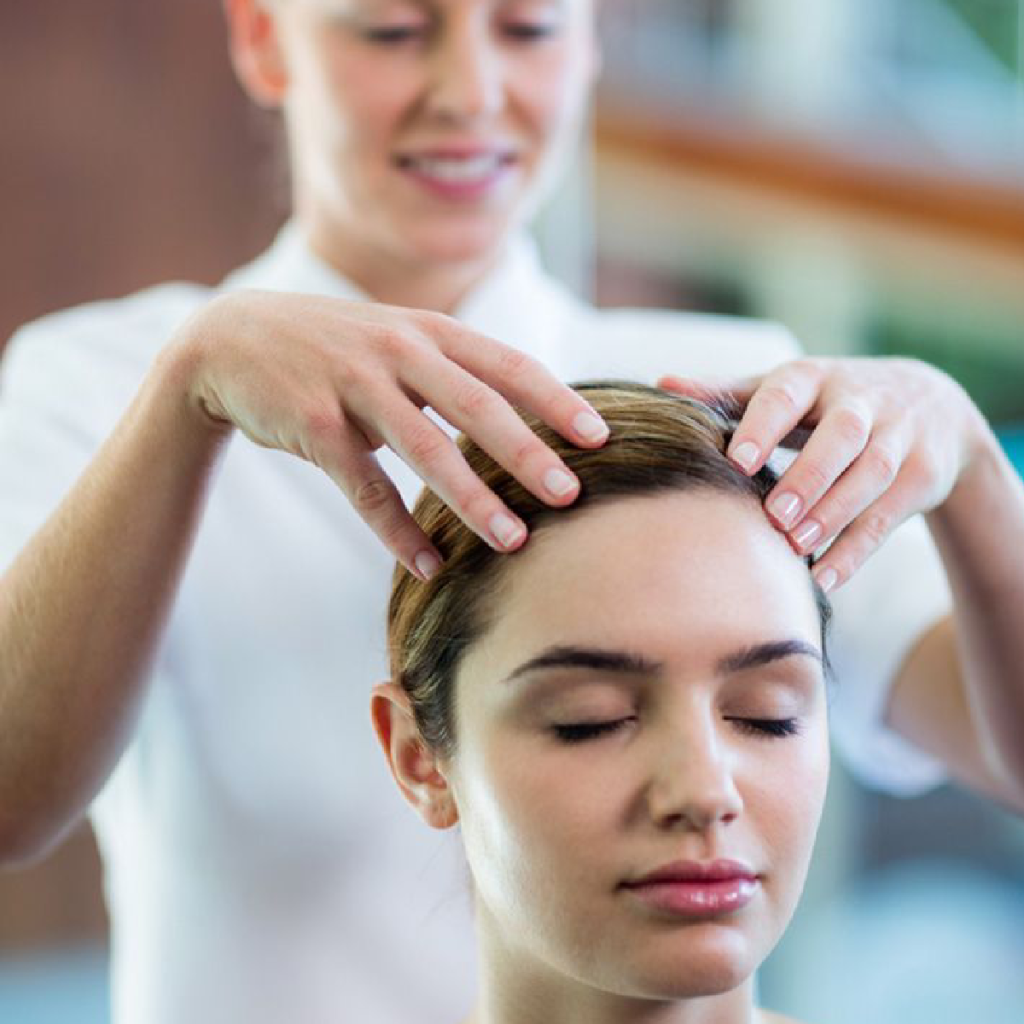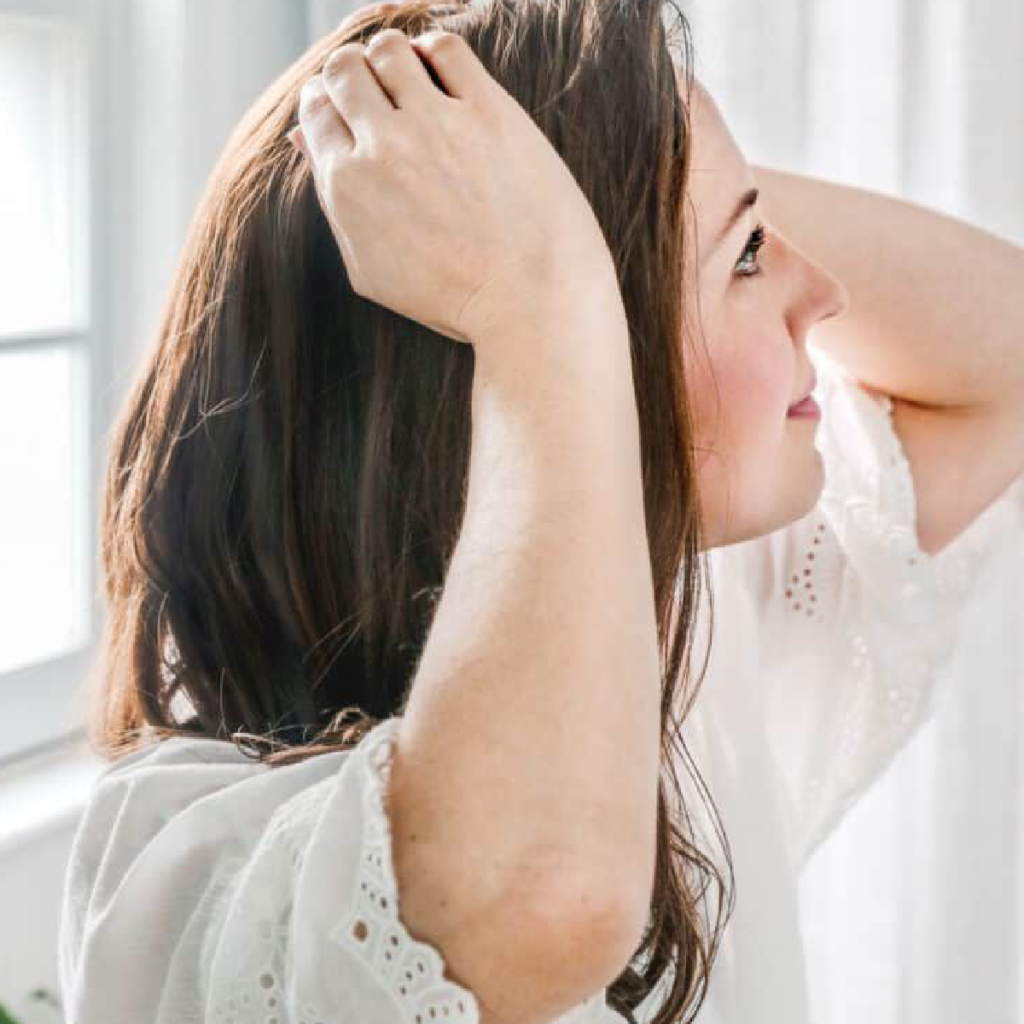Discover the potential risks and concerns associated with scalp massage.
Potential Risks and Concerns of Scalp Massage
Are you tired of the daily stress and tension that comes with a busy schedule? Do you find yourself longing for a quick escape from the mundane? Well, look no further than the soothing bliss of a scalp massage! But beware, my friend, for even the most seemingly innocent activities can have their own set of risks and concerns. In this article, we will delve deep into the world of scalp massage, exploring its benefits, potential risks, safety concerns, and precautions you should take before indulging in this delightful self-care practice. So, sit back, relax, and let’s uncover the truth behind scalp massage!

Understanding Scalp Massage
What is Scalp Massage?
Scalp massage, as the name suggests, involves massaging the scalp using various techniques such as gentle strokes, kneading, and pressure points to promote relaxation and rejuvenation. It is an ancient practice that has been passed down through the generations, offering a multitude of benefits for both the mind and body.
Benefits of Scalp Massage
Before we delve into the potential risks and concerns, let’s first explore the undeniable benefits that scalp massage has to offer. Not only does it provide a much-needed break from the chaos of life, but it also helps to stimulate blood circulation, relieve tension headaches, improve hair health, and promote overall well-being. Talk about a win-win!
Imagine feeling the stress melt away as skilled hands work their magic on your scalp, easing away any knots and tightness that may have accumulated throughout the day. The combination of physical touch and careful movements can transport you to a state of pure bliss. Ah, the power of a well-executed scalp massage!
But let’s dive deeper into the benefits, shall we? When you receive a scalp massage, the gentle strokes and kneading not only increase blood flow to the scalp, but they also stimulate the hair follicles. This increased blood flow and stimulation can promote hair growth and improve the overall health of your hair.
Additionally, scalp massage has been known to relieve tension headaches. As the skilled hands work their way across your scalp, they help to release the tension that may have built up in the muscles of your head and neck. This release of tension can provide immediate relief from headaches, leaving you feeling refreshed and revitalized.
Furthermore, a scalp massage can have a profound impact on your overall well-being. As the stress and tension melt away, you may find yourself feeling more relaxed, calm, and centered. The combination of physical touch and the release of endorphins can create a sense of euphoria and promote a positive mood.
Not to mention, scalp massage can be an incredibly soothing and enjoyable experience. The sensation of skilled hands gliding across your scalp can be incredibly pleasurable, creating a sense of tranquility and serenity. It’s a moment of pure indulgence, a time to let go of worries and simply be present in the moment.
So, whether you’re looking to improve your hair health, relieve tension headaches, or simply indulge in a moment of relaxation, scalp massage has something to offer. It’s a practice that has stood the test of time, providing countless individuals with a sanctuary of peace and rejuvenation.
Potential Risks of Scalp Massage
Over-Stimulation of the Scalp
Like most things in life, moderation is key. While scalp massage is generally safe and beneficial, overdoing it can lead to over-stimulation of the scalp. This can result in increased oil production, a greasy scalp, and potentially even hair loss. So, remember to enjoy your massage in moderation, lest you become a victim of an oily catastrophe.
When it comes to scalp massage, it’s important to strike a balance. While a gentle massage can stimulate blood flow and promote relaxation, excessive pressure or prolonged sessions can have adverse effects. The scalp has sebaceous glands that produce natural oils to keep the hair and scalp moisturized. However, over-stimulation can cause these glands to go into overdrive, resulting in an oily scalp. This excess oil can make your hair look greasy and weigh it down, giving you a less-than-desirable appearance.
Furthermore, over-stimulation of the scalp can also lead to hair loss. The excessive manipulation and friction can weaken the hair follicles, causing them to become fragile and prone to breakage. This can eventually result in thinning hair or even bald patches.
Allergic Reactions to Massage Oils
Did you know that some massage oils can cause allergic reactions? It’s true! So, before you dive headfirst into your scalp massage escapades, be sure to test the oil on a small patch of skin to ensure that you won’t break out into an itchy rash resembling a dalmatian’s spots. Better safe than sorry, right?
When it comes to choosing the right massage oil for your scalp, it’s crucial to consider any potential allergies or sensitivities you may have. Some oils, such as coconut oil or almond oil, are generally safe for most people. However, others, like lavender oil or peppermint oil, can cause adverse reactions in individuals with sensitive skin.
To avoid any unpleasant surprises, it’s recommended to perform a patch test before applying any oil to your scalp. Simply apply a small amount of the oil to a small area of skin, like your forearm, and wait for at least 24 hours to see if any redness, itching, or irritation occurs. This simple precaution can save you from the discomfort of an allergic reaction and ensure a pleasant scalp massage experience.
Worsening of Pre-existing Scalp Conditions
If you already suffer from scalp conditions such as dandruff, psoriasis, or a sensitive scalp, it’s important to proceed with caution. While scalp massage can provide relief for some, for others, it may exacerbate these conditions. To avoid any unnecessary discomfort, consult with a healthcare professional before indulging in some scalp massage therapy.
Scalp conditions can vary greatly from person to person, and what works for one individual may not work for another. While scalp massage can help improve blood circulation and alleviate some scalp issues, it’s essential to understand the specific needs of your scalp condition before proceeding.
For example, if you have dandruff, a gentle scalp massage with the right anti-dandruff shampoo can help remove flakes and reduce itchiness. However, if you have psoriasis, a more aggressive massage may irritate the skin and worsen the condition. Similarly, if you have a sensitive scalp, excessive pressure during a massage can cause discomfort and inflammation.
By consulting with a healthcare professional, you can gain valuable insights into the best approach for your scalp condition. They can provide personalized recommendations and help you determine the right techniques and products to use during your scalp massage sessions.
Safety Concerns with Scalp Massage
Inappropriate Pressure Application
Remember, your scalp is not an unyielding piece of cement that can withstand excessive pressure. It’s a delicate part of your body that requires gentle care. Applying too much pressure during a scalp massage can lead to headaches, discomfort, or even hair breakage. So, be kind to your scalp and treat it with the love and tenderness it deserves!
When it comes to scalp massage, the key is finding the perfect balance between relaxation and stimulation. Too much pressure can cause the blood vessels in your scalp to constrict, leading to reduced blood flow and potential discomfort. On the other hand, too little pressure may not provide the desired benefits, leaving you feeling unsatisfied.
Imagine your scalp as a beautiful garden, with each hair follicle representing a delicate flower. Just like you wouldn’t want to trample on your precious flowers, you shouldn’t subject your scalp to excessive force. Instead, opt for gentle circular motions or light kneading to promote relaxation and blood circulation without causing harm.
Risks Associated with Specific Techniques
While the majority of scalp massage techniques are safe, some require extra caution. Techniques such as vigorous rubbing, pulling on the hair, or using excessive force on pressure points may result in unwanted side effects. So, always ensure that your chosen massage therapist is skilled and knowledgeable in the art of scalp massage. After all, you wouldn’t let a clumsy unicorn paint your portrait, would you?
When it comes to specific techniques, it’s important to consider the individual needs and sensitivities of your scalp. For example, if you have a sensitive scalp or certain scalp conditions, such as dandruff or psoriasis, certain massage techniques may exacerbate the issue. It’s always a good idea to communicate openly with your massage therapist about any concerns or specific conditions you may have, so they can tailor the experience to your needs.
Remember, a skilled massage therapist will have a repertoire of techniques that can be customized to suit your preferences and address any specific concerns. From gentle strokes to targeted acupressure, they will work with you to create a safe and enjoyable experience that leaves your scalp feeling refreshed and rejuvenated.
Potential for Hair Damage
Oh, the luscious locks that grace our precious heads! We wouldn’t want anything to harm their beauty, would we? Well, my friend, it’s essential to be mindful of the potential for hair damage during a scalp massage. Vigorous pulling, tugging, or using the wrong hair products can lead to breakage, split ends, and other hair-related nightmares. Remember, healthy hair is happy hair!
When receiving a scalp massage, it’s important to consider the health and condition of your hair. If you have fragile or damaged hair, excessive manipulation can further weaken the strands and cause them to break. The key is to strike a balance between providing stimulation to the scalp and being gentle with your precious tresses.
Additionally, the products used during a scalp massage can play a significant role in the health of your hair. It’s important to use high-quality, nourishing products that are suitable for your hair type. Avoid harsh chemicals or ingredients that may cause dryness or irritation. Your scalp and hair deserve to be treated with the utmost care and respect, so choose your products wisely.
Remember, a scalp massage should be a relaxing and rejuvenating experience, not a source of stress or damage. By being mindful of pressure application, choosing a skilled therapist, and considering the needs of your hair, you can ensure that your scalp massage is a delightful treat for both your scalp and your locks.
Precautions to Take Before a Scalp Massage

Consulting with a Healthcare Professional
When in doubt, seek the wisdom of a healthcare professional! If you have any pre-existing scalp conditions, allergies, or concerns, it’s always a good idea to have a chat with your trusted healthcare provider. They can offer personalized advice and recommendations to ensure your scalp massage experience is safe and beneficial. Don’t be shy; they’ve heard it all!
Choosing a Qualified Massage Therapist
Not all hands are created equal, my friend. When entrusting someone with the sacred task of massaging your scalp, make sure they are qualified and skilled in the art of scalp massage. Do your research, read reviews, and ask for recommendations. After all, your scalp deserves the best!
Understanding Your Scalp’s Health
No one knows your scalp better than you do! Take the time to understand its specific needs and limitations. Are you prone to dryness? Do you have sensitive skin? Knowing and understanding your scalp’s health will help you make informed decisions and tailor your scalp massage experience accordingly. It’s like having your own personalized scalp whisperer!
In conclusion, scalp massage is a wonderful practice that offers numerous benefits for the mind, body, and hair. However, it’s important to be aware of the potential risks and concerns associated with this delightful indulgence. By understanding the art of scalp massage, taking necessary precautions, and indulging in moderation, you can unlock the true potential of this ancient self-care ritual. So, go forth, my friends, and may your scalp massage adventures be filled with relaxation, rejuvenation, and a touch of playful indulgence!





